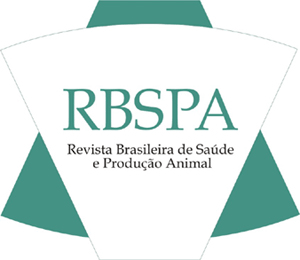ABSTRACT
The objective of this work was to evaluate the effect of increasing levels of guava agro-industrial waste (GAW) on the ingestive behavior of Santa Inês lambs. Forty non-castrated sheep of the Santa Inês breed were used, at an initial weight of 21.33 ± 2.62 kg, and at the age of 120 days, distributed in a completely randomized design, with five treatments and fed with increasing GAW levels (0.0, 7.5, 15.0, 22.5 and 30.0%). The average daily gain (ADG) showed orthogonal contrast (P <0.05), in which the animals that ingested the control diet had lower performances. The animals with GAW added to the diet obtained more significant weight gains reflected by a better feed conversion. Among the variables, idleness, feeding, and total chewing time had a significant effect (P<0.05); animals spent more time idle at the 30.0% inclusion level and less time in the control group. However, the means of the 7.5, 15.0, and 22.5% GAW inclusion levels were statistically similar to the control group and the 30.0% level. There was a significant effect (P<0.05) on feed efficiency, with the lowest values being presented for the control group and the highest values at the 30% inclusion level of GAW. The 30.0% GAW feed for lambs in confinement reduces feed time, and total chewing prolongs idleness and increases feed efficiency without compromising dry matter intake, neutral detergent fiber intake, and ADG.
Keywords:
alimentary efficiency; alternative feed; ethology; GAW; idle
